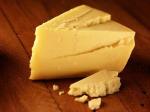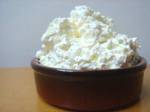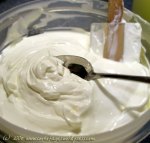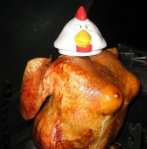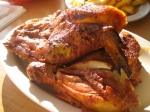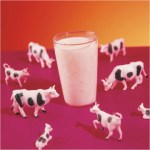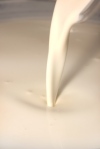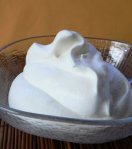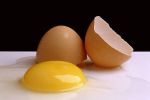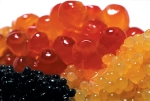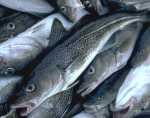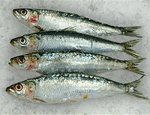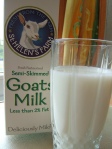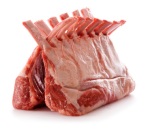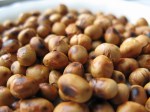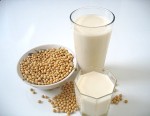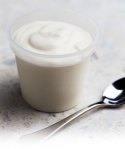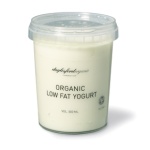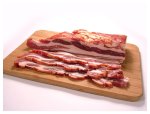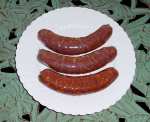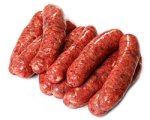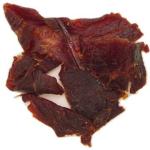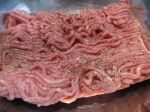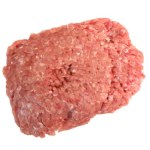Beef (maatu karri)
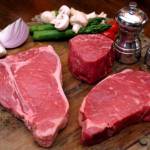
Six ounces of lean, chuck beef, braised contains 49.2 grams of protein, 505 calories and 32.59 grams of fat.
Potassium – 393 mg
Phosphorus – 296 mg
Calcium – 27 mg
Magnesium – 32 mg
Iron – 4.11 mg
Sodium – 80 mg
Zinc – 11.32 mg
Manganese – 0.017 mg
Copper – 0.168 mg
Selenium – 45.9 mcg
Also contains a small amount of other minerals.
Vitamin B1 (thiamine) – 0.1 mg
Vitamin B2 (riboflavin) – 0.291 mg
Niacin – 6.979 mg
Pantothenic Acid – 0.971 mg
Vitamin B6 – 0.0481 mg
Folate – 15 mcg
Vitamin B12 – 3.62 mcg
Vitamin E – 0.87 mg
Vitamin K – 3.1 mcg
Vitamin D – 14 IU
Contains some other vitamins in small amounts.
Cheddar Cheese (amul cheese)
One cup of shredded cheddar cheese contains 28.14 grams of protein, 455 calories and 37.45 grams of fat.
Potassium – 111 mg
Phosphorus – 579 mg
Calcium – 815 mg
Magnesium – 32 mg
Iron – 0.77 mg
Sodium – 702 mg
Manganese – 0.011 mg
Zinc – 3.51 mg
Copper – 0.35 mg
Selenium – 15.7 mcg
Also contains trace amounts of other minerals.
Vitamin B1 (thiamine) – 0.031 mg
Vitamin B2 (riboflavin) – 0.424 mg
Niacin – 0.09 mg
Pantothenic Acid – 0.467 mg
Vitamin B6 – 0.084 mg
Folate – 20 mcg
Vitamin B12 – 0.94 mcg
Vitamin A – 1132 IU
Vitamin E – 0.33 mg
Vitamin K – 3.2 mcg
Vitamin D – 27 IU
Contains some other vitamins in small amounts.
Cottage Cheese (paneer)
Four ounces of low fat 2% cottage cheese contains 13.37 grams protein, 97 calories and 2.77 grams of fat.
Potassium – 95 mg
Phosphorus – 184 mg
Calcium – 103 mg
Magnesium – 8 mg
Iron – 0.17 mg
Sodium – 373 mg
Zinc – 0.46 mg
Copper – 0.034 mg
Selenium – 11.2 mcg
Also contains trace amounts of other minerals.
Vitamin B1 (thiamine) – 0.046 mg
Vitamin B2 (riboflavin) – 0.224 mg
Niacin – 0.122 mg
Pantothenic Acid – 0.286 mg
Vitamin B6 – 0.025 mg
Folate – 11 mcg
Vitamin B12 – 0.51 mcg
Vitamin A – 84 IU
Vitamin E – 0.05 mg
Contains some other vitamins in small amounts.
Cream Cheese
Three ounces (1 small package) of cream cheese contains 5.04 grams of protein, 291 calories and 29.1 grams of fat.
Potassium – 117 mg
Phosphorus – 90 mg
Calcium – 83 mg
Magnesium – 8 mg
Iron – 0.32 mg
Sodium – 273 mg
Manganese – 0.009 mg
Zinc – 0.43 mg
Copper – 0.016 mg
Selenium – 2 mcg
Also contains trace amounts of other minerals.
Vitamin B1 (thiamine) – 0.017 mg
Vitamin B2 (riboflavin) – 0.106 mg
Niacin – 0.123 mg
Pantothenic Acid – 0.484 mg
Vitamin B6 – 0.03 mg
Folate – 9 mcg
Vitamin B12 – 0.21 mcg
Vitamin A – 1075 IU
Vitamin E – 0.55 mg
Vitamin K – 2.9 mcg
Vitamin D – 21 IU
Contains some other vitamins in small amounts.
Chicken Breast
100 grams of chicken breast, roasted with skin contains 29.80 grams of protein, 197 calories and 7.78 grams of fat.
Potassium – 245 mg
Phosphorus – 214 mg
Calcium – 14 mg
Magnesium- 27 mg
Iron – 1.07 mg
Sodium – 71 mg
Manganese – 0.018 mg
Zinc – 1.02 mg
Copper – 0.05 mg
Selenium – 24.7 mcg
Also contains trace amounts of other minerals.
Vitamin B1 (thiamine) – 0.066 mg
Vitamin B2 (riboflavin) – 0.119 mg
Niacin – 12.71 mg
Pantothenic Acid – 0.936 mg
Vitamin B6 – 0.56 mg
Folate – 4 mcg
Vitamin B12 – 0.32 mcg
Vitamin A – 93 IU
Vitamin E – 0.27 mg
Vitamin K – 0.3 mcg
Vitamin D – 5 IU
Contains some other vitamins in small amounts.
Chicken (Dark Meat)
100 grams of dark meat, roasted with skin contains 25.97 grams of protein, 253 calories and 15.78 grams of fat.
Potassium – 220 mg
Phosphorus – 168 mg
Calcium – 15 mg
Magnesium – 22 mg
Iron – 1.36 mg
Sodium – 87 mg
Manganese – 0.021 mg
Zinc – 2.49 mg
Copper – 0.077 mg
Selenium – 20.2 mcg
Also contains trace amounts of other minerals.
Vitamin B1 (thiamine) – 0.066 mg
Vitamin B2 (riboflavin) – 0.21 mg
Niacin – 6.359 mg
Pantothenic Acid – 1.11 mg
Vitamin B6 – 0.31 mg
Folate – 7 mcg
Vitamin B12 – 0.29 mcg
Vitamin A – 201 IU
Contains some other vitamins in small amounts.
Cow’s Milk (Maatu paal)
One cup of whole milk(without added Vit A & D) contains 7.69 grams of protein and 149 calories.
Potassium – 322 mg
Phosphorus – 205 mg
Calcium – 276 mg
Magnesium – 24 mg
Iron – 0.07 mg
Sodium – 105 mg
Manganese – 0.01 mg
Zinc – 0.9 mg
Copper – 0.061 mg
Selenium – 9 mcg
Also contains trace amounts of other minerals.
Vitamin B1 (thiamine) – 0.112 mg
Vitamin B2 (riboflavin) – 0.0412 mg
Niacin – 0.217 mg
Pantothenic Acid – 0.91 mg
Vitamin B6 – 0.088 mg
Folate – 12 mcg
Vitamin B12 – 1.1 mcg
Vitamin A – 395 IU
Vitamin E – 0.17 mg
Vitamin K – 0.7 mcg
Vitamin D – 5 IU
Contains some other vitamins in small amounts.
Cream – Half & Half
One fluid ounce of half and half (equal to 2 individual container servings) contains 0.89 grams of protein, 39 calories and 3.47 grams of fat.
Potassium – 39 mg
Phosphorus – 29 mg
Calcium – 32 mg
Magnesium – 3 mg
Iron – 0.02 mg
Sodium – 12 mg
Zinc – 0.15 mg
Copper – 0.003 mg
Selenium – 0.5 mcg
Also contains trace amounts of other minerals.
Vitamin C – 0.3 mg
Vitamin B1 (thiamine) – 0.011 mg
Vitamin B2 (riboflavin) – 0.045 mg
Niacin – 0.024 mg
Pantothenic Acid – 0.087 mg
Vitamin B6 – 0.012 mg
Folate – 1 mcg
Vitamin B12 – 0.1 mcg
Vitamin A – 107 IU
Vitamin E – 0.1 mg
Vitamin K – 0.4 mcg
Vitamin D – 2 IU
Contains some other vitamins in small amounts.
Cream – Heavy Whipping
One fluid ounce of heavy whipping cream with no sugar added contains 0.61 grams of protein, 103 calories and 11.03 grams of fat.
Potassium – 22 mg
Phosphorus – 18 mg
Calcium – 19 mg
Magnesium – 2 mg
Iron – 0.01 mg
Sodium – 11 mg
Zinc – 0.07 mg
Copper – 0.002 mg
Selenium – 0.1 mcg
Also contains trace amounts of other minerals.
Vitamin C – 0.2 mg
Vitamin B1 (thiamine) – 0.007 mg
Vitamin B2 (riboflavin) – 0.033 mg
Niacin – 0..12 mg
Pantothenic Acid – 0.076 mg
Vitamin B6 – 0.008 mg
Folate – 1 mcg
Vitamin B12 – 0.05 mcg
Vitamin A – 438 IU
Vitamin E – 0.32 mg
Vitamin K – 1 mcg
Vitamin D – 8 IU
Contains some other vitamins in small amounts.
Eggs (muttai)
Two eggs scrambled, with no salt added contain 13.53 grams of protein, 204 calories and 14.9 grams of fat.
Potassium – 168 mg
Phosphorus – 207 mg
Calcium – 87 mg
Magnesium – 15 mg
Iron – 1.46 mg
Sodium – 342 mg
Manganese – 0.027 mg
Zinc – 1.22 mg
Copper – 0.017 mg
Selenium – 27.4 mcg
Also contains trace amounts of other minerals.
Vitamin C – 0.2 mg
Vitamin B1 (thiamine) – 0.063 mg
Vitamin B2 (riboflavin) – 0.533 mg
Niacin – 0.096 mg
Pantothenic Acid – 1.229 mg
Vitamin B6 – 0.144 mg
Folate – 37 mcg
Vitamin B12 – 0.94 mcg
Vitamin A – 642 IU
Vitamin E – 1.33 mg
Vitamin K – 4.9 mcg
Vitamin D – 59 IU
Contains some other vitamins in small amounts
Fish – Ancovies (neththili meen)
One ounce of boneless anchovies, canned in oil and drained contains 8.19 grams of protein, 60 calories and 2.75 grams of fat.
Potassium – 154 mg
Phosphorus – 71 mg
Calcium – 66 mg
Magnesium – 20 mg
Iron – 1.31 mg
Sodium – 1040 mg
Manganese – 0.028 mg
Zinc – 0.69 mg
Copper – 0.096 mg
Selenium – 19.3 mcg
Also contains trace amounts of other minerals.
Vitamin B1 (thiamine) – 0.022 mg
Vitamin B2 (riboflavin) – 0.103 mg
Niacin – 5.643 mg
Pantothenic Acid – 0.258 mg
Vitamin B6 – 0.058 mg
Folate – 4 mcg
Vitamin B12 – 0.25 mcg
Vitamin A – 11 IU
Vitamin E – 0.94 mg
Vitamin K – 3.4 mcg
Vitamin D – 20 IU
Contains some other vitamins in small amounts.
Fish – Catfish (vanjara meen)
100 grams of catfish, cooked with dry heat contains 18.72 grams of protein, 152 calories and 8.02 grams of fat.
Potassium – 321 mg
Phosphorus – 245 mg
Calcium – 9 mg
Magnesium – 26 mg
Iron – 0.82 mg
Sodium – 80 mg
Manganese – 0.02 mg
Zinc – 1.05 mg
Copper – 0.122 mg
Selenium – 14.5 mcg
Also contains trace amounts of other minerals.
Vitamin C – 0.8 mg
Vitamin B1 (thiamine) – 0.42 mg
Vitamin B2 (riboflavin) – 0.073 mg
Niacin – 2.513 mg
Pantothenic Acid – 0.617 mg
Vitamin B6 – 0.163 mg
Folate – 7 mcg
Vitamin B12 – 2.8 mcg
Vitamin A – 50 IU
Contains some other vitamins in small amounts.
Fish – Caviar
One ounce of caviar, black or red contains 6.97 grams of protein, 71 calories and 5.07 grams of fat.
Potassium – 51 mg
Phosphorus – 101 mg
Calcium – 78 mg
Magnesium – 85 mg
Iron – 3.37 mg
Sodium – 425 mg
Manganese – 0.014 mg
Zinc – 0.27 mg
Copper – 0.031 mg
Selenium – 18.6 mcg
Also contains trace amounts of other minerals
Vitamin B1 (thiamine) – 0.054 mg
Vitamin B2 (riboflavin) – 0.176 mg
Niacin – 0.034 mg
Pantothenic Acid – 0.992 mg
Vitamin B6 – 0.091 mg
Folate – 14 mcg
Vitamin B12 – 5.67 mcg
Vitamin A – 257 IU
Vitamin E – 0.54 mg
Vitamin K – 0.2 mcg
Vitamin D – 33 IU
Contains some other vitamins in small amounts.
Fish – Cod (panna meen)
100 grams of cod cooked with dry heat contains 22.83 grams of protein, 105 calories and 0.86 grams of fat.
Potassium – 244 mg
Phosphorus – 138 mg
Calcium – 14 mg
Magnesium – 42 mg
Iron – 0.49 mg
Sodium – 78 mg
Manganese – 0.02 mg
Zinc – 0.58 mg
Copper – 0.036 mg
Selenium – 37.6 mcg
Also contains trace amounts of other minerals.
Vitamin C – 1 mg
Vitamin B1 (thiamine) – 0.088 mg
Vitamin B2 (riboflavin) – 0.079 mg
Niacin – 2.513 mg
Pantothenic Acid – 0.18 mg
Vitamin B6 – 0.283 mg
Folate – 8 mcg
Vitamin B12 – 1.05 mcg
Vitamin A – 47 IU
Vitamin E – 0.81 mg
Vitamin K – 0.1 mcg
Vitamin D – 46 IU
Contains some other vitamins in small amounts.
Fish – Herring (maththi meen)
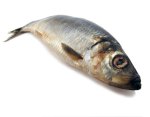
100 grams of herring cooked with dry heat, contains 23.03 grams of protein, 203 calories and 11.59 grams of fat.
Potassium – 419 mg
Phosphorus – 303 mg
Calcium – 74 mg
Magnesium – 41 mg
Iron – 1.41 mg
Sodium – 115 mg
Manganese – 0.04 mg
Zinc – 1.27 mg
Copper – 0.118 mg
Selenium – 46.8 mcg
Also contains trace amounts of other minerals
Vitamin C – 0.7 mg
Vitamin B1 (thiamine) – 0.112 mg
Vitamin B2 (riboflavin) – 0.229 mg
Niacin – 4.124 mg
Pantothenic Acid – 0.74 mg
Vitamin B6 – 0.348 mg
Folate – 12 mcg
Vitamin B12 – 13.14 mcg
Vitamin A – 120 IU
Vitamin E – 1.37 mg
Vitamin K – 0.1 mcg
Vitamin D – 214 IU
Contains some other vitamins in small amounts.
Fish – Perch (paswa meen)

100 grams of perch cooked with dry heat, contains 24.86 grams of protein, 117 calories and 1.18 grams of fat.
Potassium – 344 mg
Phosphorus – 257 mg
Calcium – 102 mg
Magnesium – 38 mg
Iron – 1.16 mg
Sodium – 79 mg
Manganese – 0.9 mg
Zinc – 1.43 mg
Copper – 0.192 mg
Selenium – 16.1 mcg
Also contains trace amounts of other minerals
Vitamin C – 1.7 mg
Vitamin B1 (thiamine) – 0.08 mg
Vitamin B2 (riboflavin) – 0.12 mg
Niacin – 1.9 mg
Pantothenic Acid – 0.87 mg
Vitamin B6 – 0.14 mg
Folate – 6 mcg
Vitamin B12 – 2.2 mcg
Vitamin A – 32 IU
Contains some other vitamins in small amounts.
Fish – Pollock
100 grams of Atlantic pollock cooked with dry heat, contains 24.92 grams of protein, 118 calories and 1.26 grams of fat.
Potassium – 456 mg
Phosphorus – 283 mg
Calcium – 77 mg
Magnesium – 86 mg
Iron – 0.59 mg
Sodium – 110 mg
Manganese – 0.019 mg
Zinc – 0.6 mg
Copper – 0.064 mg
Selenium – 46.8 mcg
Also contains trace amounts of other minerals
Vitamin B1 (thiamine) – 0.054 mg
Vitamin B2 (riboflavin) – 0.225 mg
Niacin – 3.983 mg
Pantothenic Acid – 0.413 mg
Vitamin B6 – 0.331 mg
Folate – 3 mcg
Vitamin B12 – 3.68 mcg
Vitamin A – 40 IU
Contains some other vitamins in small amounts.
Fish – Salmon (kaala meen)
100 grams of wild, Atlantic salmon cooked with dry heat, contains 25.44 grams of protein, 182 calories and 8.13 grams of fat.
Potassium – 628 mg
Phosphorus – 256 mg
Calcium – 15 mg
Magnesium – 37 mg
Iron – 1.03 mg
Sodium – 56 mg
Manganese – 0.021 mg
Zinc – 0.82 mg
Copper – 0.321 mg
Selenium – 46.8 mcg
Also contains trace amounts of other minerals
Vitamin B1 (thiamine) – 0.275 mg
Vitamin B2 (riboflavin) – 0.487 mg
Niacin – 10.077 mg
Pantothenic Acid – 1.92 mg
Vitamin B6 – 0.944 mg
Folate- 29 mcg
Vitamin B12 – 3.05 mcg
Vitamin A – 44 IU
Contains some other vitamins in small amounts.
Fish – Sardines (chaala meen)
100 grams of Atlantic sardines, canned in oil, drained solids with bone, contains 24.62 grams of protein, 208 calories and 11.45 grams of fat.
Potassium – 397 mg
Phosphorus – 490 mg
Calcium – 382 mg
Magnesium – 39 mg
Iron – 2.92 mg
Sodium – 505 mg
Manganese – 0.108 mg
Zinc – 1.31 mg
Copper – 0.186 mg
Selenium – 52.7 mcg
Also contains trace amounts of other minerals.
Vitamin B1 (thiamine) – 0.08 mg
Vitamin B2 (riboflavin) – 0.227 mg
Niacin – 5.245 mg
Pantothenic Acid – 0.64 mg
Vitamin B6 – 0.167 mg
Folate – 10 mcg
Vitamin B12 – 8.94 mcg
Vitamin A – 108 IU
Vitamin E – 2.04 mg
Vitamin D – 193 IU
Vitamin K – 2.6 mcg
Contains some other vitamins in small amounts.
Fish – Tuna (soorai meen)
100 grams of bluefin tuna, cooked with dry heat, contains 29.91 grams of protein, 184 calories and 6.28 grams of fat.
Potassium – 323 mg
Phosphorus – 326 mg
Calcium – 10 mg
Magnesium – 64 mg
Iron – 1.31 mg
Sodium – 50 mg
Manganese- 0.02 mg
Zinc – 0.77 mg
Copper – 0.11 mg
Selenium 46.8 mcg
Also contains trace amounts of other minerals
Vitamin B1 (thiamine) – 0.278 mg
Vitamin B2 (riboflavin) – 0.306 mg
Niacin – 10.54 mg
Pantothenic Acid – 1.37 mg
Vitamin B6 – 0.525 mg
Folate – 2 mcg
Vitamin B12 – 10.88 mcg
Vitamin A – 2520 IU
Contains some other vitamins in small amounts.
Goat Milk (aathu paal)
One cup of goat milk contains 8.69 grams of protein, 168 calories and 10.1 grams of fat.
Potassium – 498 mg
Phosphorus – 271 mg
Calcium – 327 mg
Magnesium – 34 mg
Iron – 0.12 mg
Sodium – 122 mg
Manganese – 0.044 mg
Zinc – 0.73 mg
Copper – 0.112 mg
Selenium – 3.4 mcg
Also contains trace amounts of other minerals.
Vitamin C – 3.2 mg
Vitamin B1 (thiamine) – 0.117 mg
Vitamin B2 (riboflavin) – 0.337 mg
Niacin – 0.676 mg
Pantothenic Acid – 0.756 mg
Vitamin B6 – 0.112 mg
Folate – 2 mcg
Vitamin B12 – 0.17 mcg
Vitamin A – 483 IU
Vitamin E – 0.17 mg
Vitamin K – 0.7 mcg
Contains some other vitamins in small amounts.
Goat Cheese (aathu paal venna)
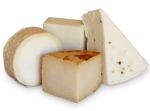
100 grams of semisoft goat cheese, contains 21.58 grams of protein, 364 calories and 29.84 grams of fat.
Potassium – 158 mg
Phosphorus – 375 mg
Calcium – 298 mg
Magnesium – 29 mg
Iron – 1.62 mg
Sodium – 515 mg
Manganese – 0.093 mg
Zinc – 0.66 mg
Copper – 0.564 mg
Selenium – 3.8 mcg
Also contains trace amounts of other minerals
Vitamin B1 (thiamine) – 0.072 mg
Vitamin B2 (riboflavin) – 0.676 mg
Niacin – 1.148 mg
Pantothenic Acid – 0.19 mg
Vitamin B6 – 0.06 mg
Folate – 2 mcg
Vitamin B12 – 0.22 mcg
Vitamin A – 1464 IU
Vitamin D – 22 IU
Vitamin E – 0.26 mg
Vitamin K – 2.5 mcg
Contains some other vitamins in small amounts.
Lamb (aathu karri)
100 grams of shoulder of lamb, roasted, contains 22.51 grams of protein, 276 calories and 22.51 grams of fat.
Potassium – 251 mg
Phosphorus – 184 mg
Calcium – 20 mg
Magnesium – 23 mg
Iron – 1.97 mg
Sodium – 66 mg
Manganese – 0.022 mg
Zinc – 5.23 mg
Copper – 0.108 mg
Selenium – 26.2 mcg
Also contains trace amounts of other minerals.
Vitamin B1 (thiamine) – 0.09 mg
Vitamin B2 (riboflavin) – 0.24 mg
Niacin – 6.15 mg
Pantothenic Acid – 0.7 mg
Vitamin B6 – 0.13 mg
Folate – 21 mcg
Vitamin B12 – 2.64 mcg
Vitamin E – 0.14 mg
Vitamin K – 4.6 mcg
Vitamin D – 2 IU
Contains some other vitamins in small amounts.
Pork (panni karri)
100 grams of lean roast pork, center loin, contains 27.55 grams of protein, 199 calories and 9.01 grams of fat.
Potassium – 362 mg
Phosphorus – 219 mg
Calcium – 25 mg
Magnesium – 22 mg
Iron – 1.04 mg
Sodium – 66 mg
Manganese – 0.016 mg
Zinc – 2.09 mg
Copper – 0.07 mg
Selenium – 43.2 mcg
Also contains trace amounts of other minerals
Vitamin C – 1 mg
Vitamin B1 (thiamine) – 0.912 mg
Vitamin B2 (riboflavin) – 0.266 mg
Niacin – 5.454 mg
Pantothenic Acid – 0.694 mg
Vitamin B6 – 0.371 mg
Folate – 4 mcg
Vitamin B12 – 0.58 mcg
Vitamin A – 7 IU
Contains some other vitamins in small amounts.
Soybeans – Roasted
100 grams of roasted soybeans, with no salt, contains 35.22 grams of protein, 471 calories, 25.4 grams of fat and 17.7 grams of fiber.
Potassium – 1470 mg
Phosphorus – 363 mg
Calcium – 138 mg
Magnesium – 145 mg
Iron – 3.9 mg
Sodium – 4 mg
Manganese – 2.158 mg
Zinc – 3.14 mg
Copper – 0.828 mg
Selenium – 19.1 mcg
Also contains trace amounts of other minerals.
Vitamin C – 2.2 mg
Vitamin B1 (thiamine) – 0.1 mg
Vitamin B2 (riboflavin) – 0.145 mg
Niacin – 1.41 mg
Pantothenic Acid – 0.453 mg
Vitamin B6 – 0.208 mg
Folate – 211 mcg
Contains some other vitamins in small amounts.
Soy Milk
One cup of original, unfortified, soy milk contains 7.95 grams of protein, 131 calories, 4.25 grams of fat and 1.5 grams of fiber.
Potassium – 287 mg
Phosphorus – 126 mg
Calcium – 61 mg
Magnesium – 61 mg
Iron – 1.56 mg
Sodium – 124 mg
Manganese – 0.542 mg
Zinc – 0.29 mg
Copper – 0.311 mg
Selenium – 11.7 mcg
Also contains trace amounts of other minerals
Vitamin B1 (thiamine) – 0.146 mg
Vitamin B2 (riboflavin) – 0.168 mg
Niacin – 1.247 mg
Pantothenic Acid – 0.906 mg
Vitamin B6 – 0.187 mg
Folate – 44 mcg
Vitamin A – 7 IU
Vitamin E – 0.27 mg
Vitamin K – 7.3 mcg
Contains some other vitamins in small amounts
Turkey Breast
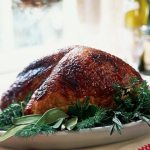
100 grams of roast turkey breast contains 28.71 grams of protein, 189 calories and 7.41 grams of fat.
Potassium – 288 mg
Phosphorus – 210 mg
Calcium – 21 mg
Magnesium – 27 mg
Iron – 1.4 mg
Sodium – 63 mg
Manganese – 0.02 mg
Zinc – 2.03 mg
Copper – 0.047 mg
Selenium – 29.1 mcg
Also contains trace amounts of other minerals
Vitamin B1 (thiamine) – 0.057 mg
Vitamin B2 (riboflavin) – 0.131 mg
Niacin – 6.365 mg
Pantothenic Acid – 0.634 mg
Vitamin B6 – 0.48 mg
Folate – 6 mcg
Vitamin B12 – 0.36 mcg
Contains some other vitamins in small amounts
Turkey Bacon
100 grams of cooked turkey bacon contains 29.6 grams of protein, 382 calories annd 27.9 grams of fat.
Potassium – 395 mg
Phosphorus – 460 mg
Calcium – 9 mg
Magnesium – 29 mg
Iron – 2.11 mg
Sodium – 2285 mg
Zinc – 3.03 mg
Copper – 0.15 mg
Selenium – 25.8 mcg
Also contains trace amounts of other minerals
Vitamin B1 (thiamine) – 0.06 mg
Vitamin B2 (riboflavin) – 0.24 mg
Niacin – 3.53 mg
Vitamin B6 – 0.32 mg
Folate – 9 mcg
Vitamin B12 – 0.36 mcg
Vitamin E – 1.03 mg
Vitamin K – 7.1 mcg
Vitamin D – 16 IU
Contains some other vitamins in small amounts
Veal

100 grams of braised veal cubes contains 34.94 grams of protein, 188 calories and 4.31 grams of fat.
Potassium – 342 mg
Phosphorus – 239 mg
Calcium – 29 mg
Magnesium – 28 mg
Iron – 1.44 mg
Sodium – 93 mg
Manganese – 0.04 mg
Zinc – 6.01 mg
Copper – 0.153 mg
Selenium – 15.2 mcg
Also contains trace amounts of other minerals
Vitamin B1 (thiamine) – 0.07 mg
Vitamin B2 (riboflavin) – 0.4 mg
Niacin – 8.3 mg
Pantothenic Acid – 1.19 mg
Vitamin B6 – 0.38 mg
Folate – 16 mcg
Vitamin B12 – 1.67 mcg
Vitamin E – 0.45 mg
Contains some other vitamins in small amounts
Yogurt (thayir)
One cup of plain, whole milk yogurt contains 8.5 grams of protein, 149 calories and 7.96 grams of fat.
Potassium – 380 mg
Phosphorus – 233 mg
Calcium – 296 mg
Magnesium – 29 mg
Iron – 0.12 mg
Sodium – 113 mg
Manganese – 0.01 mg
Zinc – 1.45 mg
Copper – 0.022 mg
Selenium – 5.4 mcg
Also contains trace amounts of other minerals.
Vitamin C – 1.2 mg
Vitamin B1 (thiamine) – 0.071 mg
Vitamin B2 (riboflavin) – 0.348 mg
Niacin – 0.184 mg
Pantothenic Acid – 0.953 mg
Vitamin B6 – 0.078 mg
Folate – 17 mcg
Vitamin B12 – 0.91 mcg
Vitamin A – 243 IU
Vitamin E – 0.15 mg
Vitamin K – 0.5 mcg
Vitamin D – 5 IU
Contains some other vitamins in small amounts.
Sour Cream

100 grams of sour cream contains 2.07 grams of protein, 193 calories and 19.73 grams of fat.
Potassium – 141 mg
Phosphorus – 115 mg
Calcium – 110 mg
Magnesium – 10 mg
Iron – 0.17 mg
Sodium – 80 mg
Manganese – 0.11 mg
Zinc – 0.38 mg
Copper – 0.019 mg
Selenium – 2.6 mcg
Also contains trace amounts of other minerals
Vitamin C – 0.9 mg
Vitamin B1 (thiamine) – 0.036 mg
Vitamin B2 (riboflavin) – 0.172 mg
Niacin – 0.109 mg
Pantothenic Acid – 0.336 mg
Vitamin B6 – 0.057 mg
Folate – 7 mcg
Vitamin B12 – 0.28 mcg
Vitamin A – 623 IU
Vitamin E – 0.44 mg
Vitamin K – 1.8 mcg
Vitamin D – 14 IU
Contains some other vitamins in small amounts
Turkey Leg
100 grams of roasted turkey leg contains 27.87 grams of protein, 208 calories and 9.82 grams of fat.
Potassium – 280 mg
Phosphorus – 199 mg
Calcium – 32 mg
Magnesium – 23 mg
Iron 2.3 mg
Sodium – 77 mg
Manganese – 0.023 mg
Zinc – 4.27 mg
Copper – 0.154 mg
Selenium – 37.8 mcg
Also contains trace amounts of other minerals
Vitamin B1 (thiamine) – 0.06 mg
Vitamin B2 (riboflavin) – 0.241 mg
Niacin – 3.561 mg
Pantothenic Acid – 1.205 mg
Vitamin B6 – 0.33 mg
Folate – 9 mcg
Vitamin B12 – 0.36 mcg
Vitamin E – 0.62 mg
Vitamin K – 4.1 mcg
Vitamin D – 4 IU
Contains some other vitamins in small amounts.
Low Fat Yogurt (morru)
One cup of plain, low fat, yogurt contains 12.86 grams of protein, 154 calories and 3.8 grams of fat.
Potassium – 573 mg
Phosphorus – 353 mg
Calcium – 448 mg
Magnesium – 42 mg
Iron – 0.2 mg
Sodium – 172 mg
Manganese – 0.01 mg
Zinc – 2.18 mg
Copper – 0.032 mg
Selenium – 8.1 mcg
Also contains trace amounts of other minerals.
Vitamin C – 2 mg
Vitamin B1 (thiamine) – 0.108 mg
Vitamin B2 (riboflavin) – 0.524 mg
Niacin – 0.279 mg
Pantothenic Acid – 1.448 mg
Vitamin B6 – 0.12 mg
Folate – 27 mcg
Vitamin B12 – 1.37 mcg
Vitamin A – 125 IU
Vitamin E – 0.07 mg
Vitamin K – 0.5 mcg
Vitamin D – 2 IU
Contains some other vitamins in small amounts.
Hot Dog (Turkey)

One turkey hot dog (45 grams) contains 5.5 grams of protein, 100 calories and 7.78 grams of fat.
Potassium – 176 mg
Phosphorus – 77 mg
Calcium – 67 mg
Magnesium – 6 mg
Iron – 0.66 mg
Sodium – 485 mg
Manganese – 0.015 mg
Zinc – 0.83 mg
Copper – 0.032 mg
Selenium – 6.8 mcg
Also contains trace amounts of other minerals.
Vitamin B1 (thiamine) – 0.016 mg
Vitamin B2 (riboflavin) – 0.081 mg
Niacin – 1.656 mg
Pantothenic Acid – 0.252 mg
Vitamin B6 – 0.064 mg
Folate – 4 mcg
Vitamin B12 – 0.37 mcg
Vitamin E – 0.28 mg
Vitamin D – 10 IU
Contains some other vitamins in small amounts.
Roast Duck
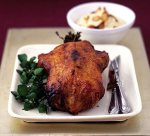
100 grams of roast duck contains 18.99 grams of protein, 337 calories and 28.35 grams of fat.
Potassium – 204 mg
Phosphorus – 156 mg
Calcium – 11 mg
Magnesium – 16 mg
Iron – 2.7 mg
Sodium – 59 mg
Manganese – 0.019 mg
Zinc – 1.86 mg
Copper – 0.227 mg
Selenium 20 mcg
Also contains trace amounts of other minerals
Vitamin B1 (thiamine) – 0.174 mg
Vitamin B2 (riboflavin) – 0.269 mg
Niacin – 4.825 mg
Pantothenic Acid – 1.098 mg
Vitamin B6 – 0.18 mg
Folate – 6 mcg
Vitamin B12 – 0.3 mcg
Vitamin A – 210 IU
Vitamin E – 0.7 mg
Vitamin K – 5.1 mcg
Vitamin D – 3 IU
Contains some other vitamins in small amounts
Hamburger
One 90% lean ground beef patty (82 grams) broiled contains 21.41 grams grams of protein, 178 calories and 9.62 grams of fat.
Potassium – 273 mg
Phosphorus – 166 mg
Calcium – 11 mg
Magnesium – 18 mg
Iron – 2.22 mg
Sodium – 56 mg
Manganese – 0.011 mg
Zinc – 5.22 mg
Copper – 0.075 mg
Selenium – 17.7 mcg
Also contains trace amounts of other minerals
Vitamin B1 (thiamine) – 0.036 mg
Vitamin B2 (riboflavin) – 0.143 mg
Niacin – 4.64 mg
Pantothenic Acid – 0.532 mg
Vitamin B6 – 0.326 mg
Folate – 7 mcg
Vitamin B12 – 2.1 mcg
Vitamin E – 0.34 mg
Vitamin K – 0.9 mcg
Vitamin D – 6 IU
Contains some other vitamins in small amounts
Bacon
Four slices of pork bacon (32 grams), cured, broiled, pan-fried or roasted contains 11.85 grams of protein, 173 calories and 13.37 grams fat.
Potassium – 181 mg
Phosphorus – 171 mg
Calcium – 4 mg
Magnesium – 11 mg
Iron – 0.46 mg
Sodium – 739 mg
Zinc – 1.12 mg
Copper – 0.052 mg
Selenium – 19.8 mcg
Also contains trace amounts of other minerals.
Vitamin B1 (thiamine) – 0.129 mg
Vitamin B2 (riboflavin) – 0.084 mg
Niacin – 3.552 mg
Pantothenic Acid – 0.375 mg
Vitamin B6 – 0.112 mg
Folate – 1 mcg
Vitamin B12 – 0.39 mcg
Vitamin A – 12 IU
Vitamin E – 0.1 mg
Vitamin D – 13 IU
Contains some other vitamins in small amounts.
Pork Sausage
Four small links of pork sausage (64 grams) contains 7.67 grams of protein, 196 calories and 18.07 grams of fat.
Potassium – 309 mg
Phosphorus – 100 mg
Calcium – 7 mg
Magnesium – 7 mg
Iron – 0.38 mg
Sodium – 529 mg
Zinc – 0.84 mg
Copper – 0.113 mg
Selenium – 11.7 mcg
Also contains trace amounts of other minerals.
Vitamin B1 (thiamine) – 0.136 mg
Vitamin B2 (riboflavin) – 0.115 mg
Niacin – 1.796 mg
Pantothenic Acid – 0.343 mg
Vitamin B6 – 0.115 mg
Folate – 1 mcg
Vitamin B12 – 0.42 mcg
Vitamin E – 0.16 mg
Vitamin D – 28 IU
Contains some other vitamins in small amounts.
Beef Sausage
100 grams of fresh beef sausage, cooked contains 18.21 grams of protein, 332 calories and 27.98 grams of fat.
Potassium – 258 mg
Phosphorus – 141 mg
Calcium – 11 mg
Magnesium – 14 mg
Iron – 1.57 mg
Sodium – 652 mg
Zinc – 4.38 mg
Copper – 0.069 mg
Also contains trace amounts of other minerals.
Vitamin B1 (thiamine) – 0.048 mg
Vitamin B2 (riboflavin) – 0.15 mg
Niacin – 3.6 mg
Pantothenic Acid – 0.515 mg
Vitamin B6 – 0.313 mg
Folate – 3 mcg
Vitamin B12 – 2.01 mcg
Vitamin A – 81 IU
Vitamin E – 0.24 mg
Vitamin K – 1.1 mcg
Vitamin D – 18 IU
Contains some other vitamins in small amounts.
Beef Jerky (machacado)
One once of beef jerky contains 9.41 grams of protein, 115 calories, 0.5 grams fiber and 7.26 grams fat.
Potassium – 169 mg
Phosphorus – 115 mg
Calcium – 6 mg
Magnesium – 14 mg
Iron – 1.54 mg
Sodium – 627 mg
Manganese – 0.031 mg
Zinc – 2.3 mg
Copper – 0.064 mg
Selenium – 3 mcg
Also contains trace amounts of other minerals.
Vitamin B1 (thiamine) – 0.044 mg
Vitamin B2 (riboflavin) – 0.04 mg
Niacin – 0.491 mg
Pantothenic Acid – 0.046 mg
Vitamin B6 – 0.051 mg
Folate – 38 mcg
Vitamin B12 – 0.28 mcg
Vitamin E – 0.14 mg
Vitamin K – 0.7 mcg
Vitamin D – 3 IU
Contains some other vitamins in small amounts.
Hot Dog (Beef)
One beef hot dog (45 grams) contains 5.06 grams of protein, 148 calories and 13.31 grams of fat.
Potassium – 70 mg
Phosphorus – 72 mg
Calcium – 6 mg
Magnesium – 6 mg
Iron – 0.68 mg
Sodium – 513 mg
Manganese – 0.037 mg
Zinc – 1.11 mg
Copper – 0.083 mg
Selenium 3.7 mcg
Also contains trace amounts of other minerals.
Vitamin B1 (thiamine) – 0.018 mg
Vitamin B2 (riboflavin) – 0.066 mg
Niacin – 1.067 mg
Pantothenic Acid – 0.11 mg
Vitamin B6 – 0.04 mg
Folate – 2 mcg
Vitamin B12 – 0.77 mcg
Vitamin E – 0.09 mg
Vitamin K – 0.8 mcg
Vitamin D – 16 IU
Contains some other vitamins in small amounts.
Ground Turkey
One four once ground turkey patty contains 22.44 grams of protein, 193 calories and 10.78 grams of fat.
Potassium – 221 mg
Phosphorus – 161 mg
Calcium – 20 mg
Magnesium – 20 mg
Iron – 1.58 mg
Sodium – 88 mg
Manganese – 0.016 mg
Zinc – 2.35 mg
Copper – 0.074 mg
Selenium – 30.5 mcg
Also contains trace amounts of other minerals.
Vitamin B1 (thiamine) – 0.044 mg
Vitamin B2 (riboflavin) – 0.138 mg
Niacin – 3.952 mg
Pantothenic Acid – 0.667 mg
Vitamin B6 – 0.32 mg
Folate – 6 mcg
Vitamin B12 – 0.27 mcg
Vitamin E – 0.28 mg
Vitamin K – 0.7 mcg
Vitamin D – 7 IU
Contains some other vitamins in small amounts.
Ground Chicken
100 grams of cooked ground chicken contains 23.28 grams of protein, 189 calories and 10.92 grams of fat.
Potassium – 677 mg
Phosphorus – 234 mg
Calcium – 8 mg
Magnesium – 28 mg
Iron – 0.93 mg
Sodium – 75 mg
Manganese – 0.016 mg
Zinc – 1.92 mg
Copper – 0.062 mg
Selenium – 14.3 mcg
Also contains trace amounts of other minerals.
Vitamin B1 (thiamine) – 0.121 mg
Vitamin B2 (riboflavin) – 0.302 mg
Niacin – 7.107 mg
Pantothenic Acid – 1.327 mg
Vitamin B6 – 0.538 mg
Folate – 2 mcg
Vitamin B12 – 0.51 mcg
Vitamin E – 0.39 mg
Vitamin K – 2.1 mcg
Contains some other vitamins in small amounts.
